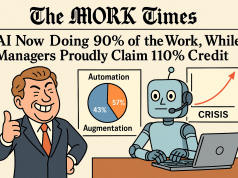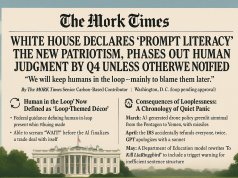In a city that never sleeps, where the skyline is etched with the credentials of the brightest minds and the streets are a boardwalk for the ambitious, New York sets its own pace for defining success. Traditional pathways, especially four-year college degrees, have long been etched in the collective consciousness as the golden ticket to a prosperous career. However, it’s time to challenge this prevailing notion and widen our lens to recognize the unsung heroes of the economy: skilled tradespeople.
The narrative that success is synonymous with a university diploma has overshadowed the intrinsic value of trade skills and vocational training. As an advocate for vocational education, I posit that society’s narrow definition of achievement has led many to overlook the robust opportunities that trade schools offer.
Consider the landscape of New York’s job market: a bustling beehive of diverse industries, each with their own unique demands. From the hum of construction sites redefining the city’s contours to the precision of technical services that keep the metropolis running, skilled trades are the backbone of the city’s perpetual motion. Yet, there remains a societal bias that undervalues these professions.
The truth is, vocational training equips individuals with specialized skills that are not only in high demand but also offer a sustainable career path. In sectors like construction, electrical work, plumbing, automotive technology, and medical assistance, to name a few, trade school graduates are often met with competitive salaries, job security, and the potential for entrepreneurial ventures. Moreover, the hands-on experience and practical knowledge gained through vocational education often lead to immediate employment, bypassing the uncertainty that can plague recent college graduates.
Our perception of career success must evolve to encompass the multiplicity of educational and occupational landscapes. Educational diversity strengthens our workforce and enriches our society. By bridging the gap between employers and trade schools, we can cultivate a more inclusive economy that recognizes the merit of each individual’s chosen path and ensures that every person’s contribution is valued.
Additionally, as the cost of college tuition continues to soar, debt becomes a formidable barrier for many. Trade schools, on the other hand, offer a more affordable, direct route to a rewarding career, making them an accessible option for individuals from various socioeconomic backgrounds.
To bring about this paradigm shift, we need cooperation and commitment from employers, educators, and policymakers alike. Employers can reframe job qualifications to emphasize skills over degrees, educators can provide comprehensive career guidance that includes trade options, and policymakers can incentivize partnerships between industries and trade schools.
By redefining success to be more inclusive of diverse educational backgrounds and skill sets, we not only open doors to new opportunities but also reinforce the economic fabric of New York and beyond. The time is ripe to champion the value of vocational training and the trades, for they are the unseen keystones of our society’s edifice.
In the heart of one of the world’s most dynamic job markets, let New York lead the charge in reimagining the blueprint of success. Remind the city that its pulse is as much in the boardrooms as it is in the buzz of construction sites and the quiet hum of technical workshops. Let’s elevate the recognition of trade skills and celebrate every path that leads to the fulfillment of one’s career aspirations.




























